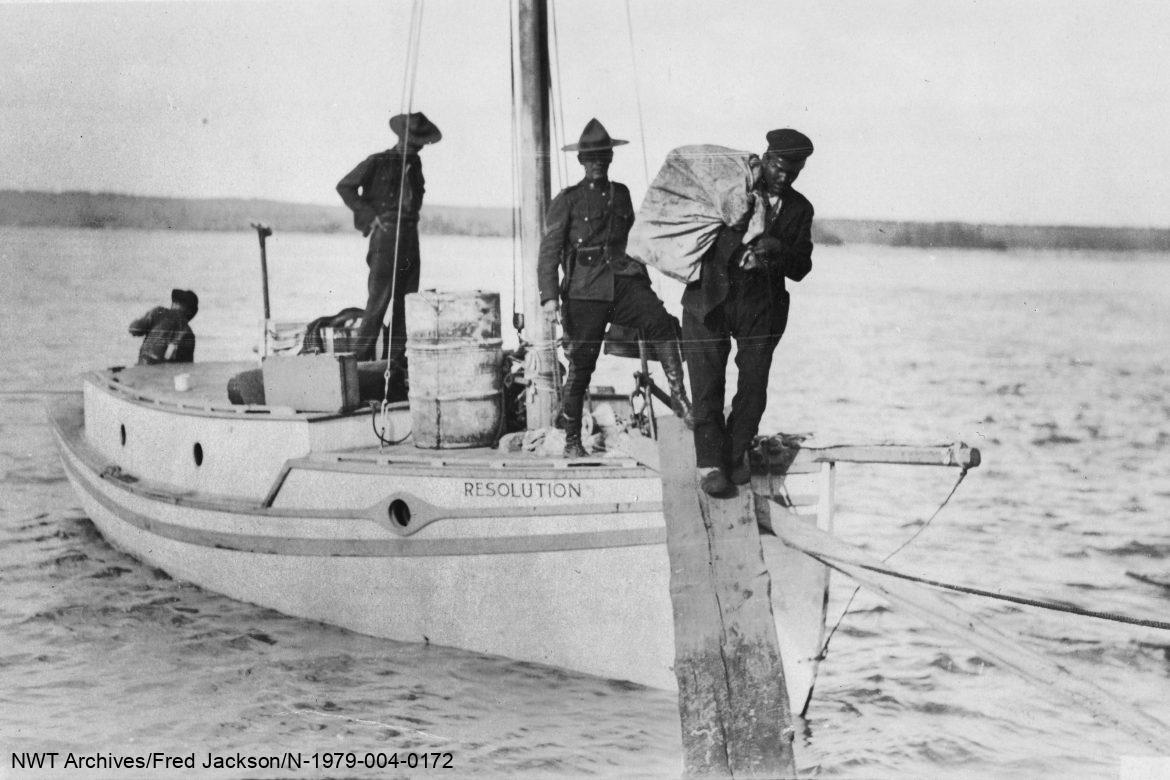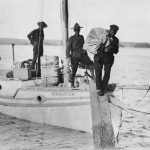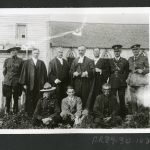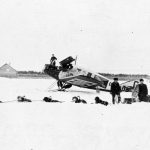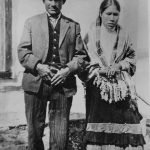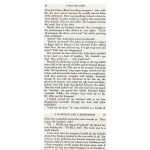1921
The Trial and Hanging of Albert LeBeau
Near the end of June 1921, the first Northwest Territories court convened in Fort Providence to hear charges of murder brought against Albert LeBeau; a Dehcho Dene man accused of murdering his wife, Adelaide.
In 1920, LeBeau, an employee of the Fort Providence Roman Catholic Mission, and his pregnant wife were on their trapline outside Fort Providence. LeBeau returned to Fort Providence after a few weeks on the trapline to say that his wife had given birth, abandoned the child then committed suicide. A Royal Canadian Mounted Police officer examined the scene, believed that the suicide was a setup, and charged LeBeau with murder.
Typically, in this period, crimes of this nature would have gone to trial in Edmonton, but in this case, the [Dominion of Canada government decided to hold LeBeau’s trial in the North. It was decided that the legal party could accompany the Commission negotiating Treaty 11, which planned to be in Fort Providence near the end of June 1921.
Not only would the judge, prosecutor, defence lawyer, and court clerks be able to travel north with the Treaty Commission, but there were many Dene gathered in the community. The Canadian government intended that the people would learn a valuable lesson about the long arm of the Canadian judicial system. The trial occurred immediately after the signing of Treaty 11 at Fort Providence.
In front of the crowd gathered at the Fort Providence Mission, Albert LeBeau was found guilty of murder and sentenced to hang. The trial judge recommended that LeBeau’s death sentence be commuted and that he should serve his time in jail. The Department of Justice would hear nothing of it, and they proceeded to arrange for the hanging in November at the Fort Smith jail.
Albert LeBeau was transported to Fort Smith, and by mid-October, the Dominion hangman was on his way north. On the morning of November 1, 1921, the Northwest Territories first court sentence was carried out. It is unclear what defence or translation services LeBeau accessed or what lesson on Canadian justice was presented to the watching people. Canadian legal systems soon dominated the northern systems altering how ancient and traditional legal systems that had been in place for millennia would be recognized by the colonial government.
